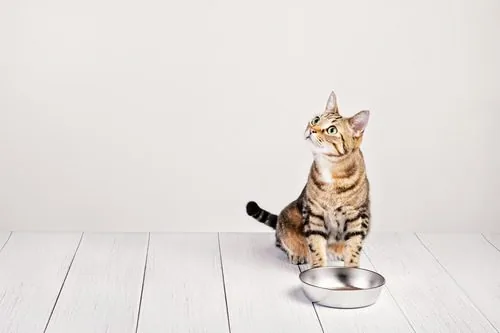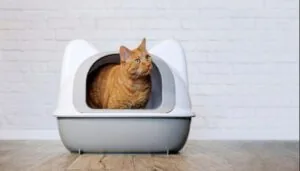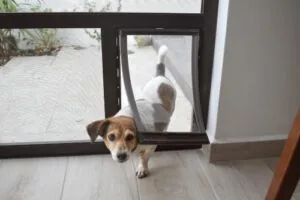Why Is My Cat Always Hungry?
If your cat always seems hungry, you’re not alone. Many pet owners notice their feline friends meowing for food, pawing at their bowls, or begging constantly. While it might seem like just a quirky personality trait, a cat’s insatiable appetite can signal an underlying issue. From dietary factors to medical conditions, there are a wide range of possible reasons why your cat is always hungry. At Shallowford Animal Hospital in Lewisville, NC, we know how important it is to monitor changes in your cat’s eating habits. If you’re concerned, our team is here to help. Call us at (336) 945-4412 or book an appointment online for a thorough evaluation.

Common Reasons Your Cat is Always Hungry
If your cat seems to have a bottomless stomach, it’s worth exploring a few common causes. While some reasons are simple and related to lifestyle, others may require veterinary attention.
Your Cat Isn’t Eating Enough Nutrients
A poor-quality diet or feeding routine can leave your cat feeling hungry all the time. Even if you’re feeding your cat regularly, low-nutrient food may not provide the vitamins, minerals, and protein your cat needs. Cats are obligate carnivores, which means their diet requires a high amount of animal-based protein. If your cat is always hungry and their food lacks quality ingredients, they may overeat or beg for more food. Check the label on your cat’s food to ensure it meets their nutritional requirements. Veterinarians recommend diets formulated with balanced nutrients, including taurine and essential amino acids. Switching to a high-quality cat food can make a noticeable difference.
Your Cat Has an Increased Metabolism
Some cats have naturally higher energy levels and faster metabolisms, causing them to burn through calories more quickly. This is especially common in kittens, younger cats, and highly active breeds like Bengals or Siamese cats. If your cat always seems hungry and is highly energetic, their increased appetite may be linked to their metabolism. In these cases, slightly increasing their food portions or feeding smaller meals more frequently can help satisfy their hunger. However, always consult with your veterinarian before making dietary changes.
Medical Conditions That Can Cause a Cat to Always Be Hungry
An increased appetite in cats, also known as polyphagia, can sometimes be a symptom of an underlying health issue. If your cat is suddenly eating more than usual or constantly acting hungry, a veterinary exam is the best next step.
Hyperthyroidism
Hyperthyroidism is a common condition in older cats and occurs when the thyroid gland produces too much thyroid hormone. This hormone regulates your cat’s metabolism, and when there’s an excess, it speeds up your cat’s bodily functions. Signs of hyperthyroidism include:
- Constant hunger despite weight loss
- Increased thirst and urination
- Restlessness or hyperactivity
- Vomiting or diarrhea
If your cat always seems hungry and displays these symptoms, schedule a vet visit. Hyperthyroidism is manageable with medication, dietary changes, or other treatments.
Diabetes Mellitus
Diabetes is another common condition that can cause your cat to always be hungry. With diabetes, your cat’s body either doesn’t produce enough insulin or can’t use it properly. Insulin is responsible for helping cells absorb glucose (sugar) for energy. When glucose can’t enter the cells, your cat feels constantly hungry, even if they’re eating enough food. Other signs of diabetes include:
- Increased thirst
- Frequent urination
- Weight loss despite increased appetite
- Lethargy
Intestinal Parasites
Parasites, such as worms, can live in your cat’s intestines and steal nutrients from the food they eat. As a result, your cat may feel hungry all the time because they aren’t absorbing the nutrients they need. Common intestinal parasites include:
- Roundworms
- Tapeworms
- Hookworms
Cats with parasites may also experience weight loss, bloating, vomiting, or diarrhea. If your cat always seems hungry and you suspect parasites, your veterinarian can perform tests to diagnose and treat the issue.
Behavioral Causes of a Cat Always Being Hungry
Not all cases of constant hunger are medical. Sometimes, a cat’s eating habits are influenced by behavior, routine, or emotional factors.
Boredom or Anxiety
Cats can develop food-seeking behaviors if they’re bored, stressed, or anxious. Eating can become a source of comfort or stimulation, leading to excessive begging or overeating. If your cat always seems hungry and you suspect behavioral issues, try the following strategies:
- Introduce interactive toys to keep your cat entertained.
- Provide puzzle feeders to slow down their eating and make mealtime fun.
- Spend more time engaging with your cat through play and enrichment activities.
Learned Behavior
Cats are intelligent and can quickly learn that begging or meowing leads to extra food or treats. If you’ve unintentionally reinforced this behavior, your cat may act hungry more often. To break this habit:
- Stick to a consistent feeding schedule.
- Avoid feeding your cat every time they beg.
- Use treats sparingly and as rewards for positive behavior.
When Should You Seek Veterinary Care for a Hungry Cat?
Although occasional hunger may not be a concern, consistent or excessive hunger can signal a problem. It’s especially important to seek veterinary care if your cat also shows other symptoms, such as:
- Weight loss
- Vomiting or diarrhea
- Increased thirst or urination
- Changes in energy levels
At Shallowford Animal Hospital, we recommend scheduling an exam to identify the cause of your cat’s increased appetite. With diagnostic tests, such as bloodwork, urinalysis, or parasite screenings, we can determine the best treatment plan for your cat.
Managing Your Cat’s Hunger and Health
While it’s natural for cats to love food, constant hunger should never be ignored. Once the cause of your cat’s increased appetite is determined, this can help you take steps to support their health and well-being. Whether it’s improving their diet, addressing a medical condition, or adjusting behavioral patterns, there are ways to ensure your cat is getting the care they need. If your cat always seems hungry, Shallowford Animal Hospital in Lewisville, NC, is here to help. Call us at (336) 945-4412 or book an appointment online to have your cat examined by our experienced team.
Share This Post
Recent Posts
About Shallowford Animal Hospital
Shallowford Animal Hospital and The Pet Spa at Shallowford are dedicated to the exceptional, compassionate care your pet deserves. Pets hold a very special place in our families, and we treat yours like our own.



